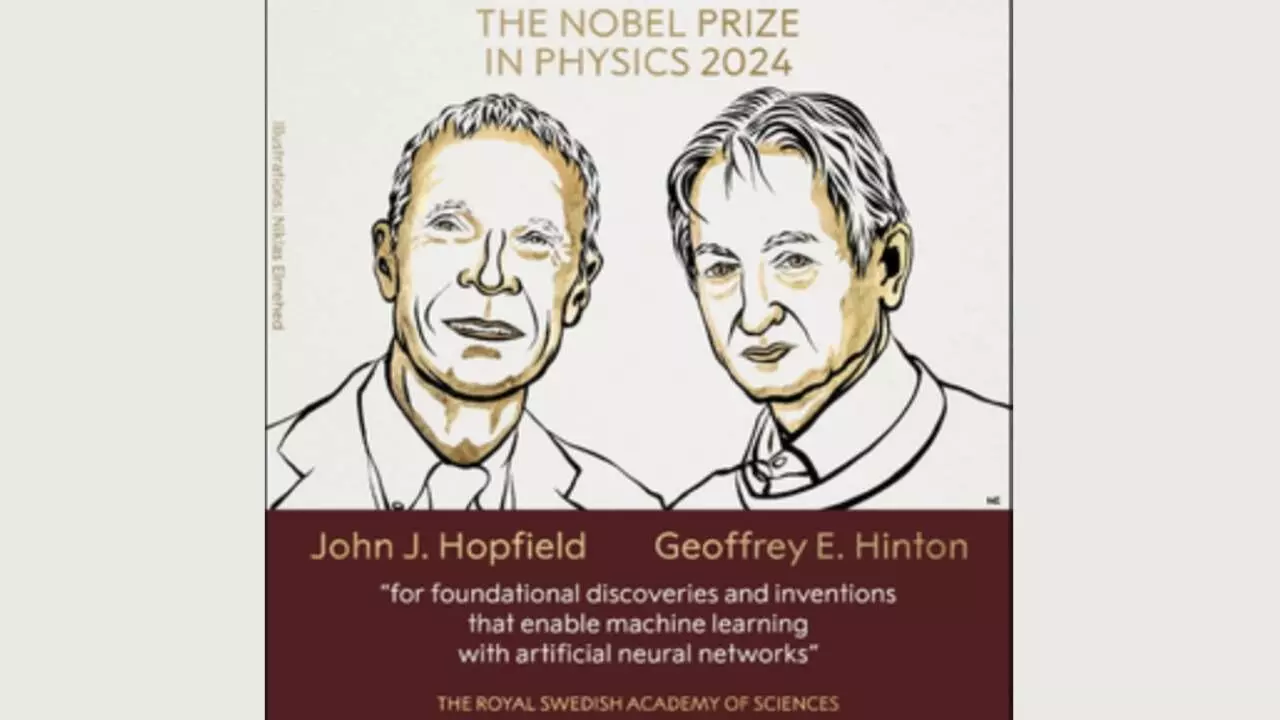Nobel Prize in Physics 2024 awarded to John J. Hopfield, Geoffrey E. Hinton for pioneering research in machine learning
The Royal Swedish Academy of Sciences on Tuesday awarded the 2024 Nobel Prize in Physics to John J. Hopfield and Geoffrey E. Hinton for pioneering research in machine learning
Nobel Prize in Physics 2024 awarded to John J. Hopfield, Geoffrey E. Hinton for pioneering research in machine learning

New Delhi, Oct 8: The Royal Swedish Academy of Sciences on Tuesday awarded the 2024 Nobel Prize in Physics to John J. Hopfield and Geoffrey E. Hinton for pioneering research in machine learning.
The scientists received the award "for foundational discoveries and inventions that enable machine learning with artificial neural networks", the Academy said.
Using tools from physics, the scientists developed methods that are the foundation of today’s powerful machine learning.
Hopfield created an associative memory that can store and reconstruct images and other types of patterns in data, while Hinton invented a method that can autonomously find properties in data. These can perform tasks such as identifying specific elements in pictures.
The Academy noted that the scientist duo have conducted important work with artificial neural networks from the 1980s onward.
"The laureates' work has already been of the greatest benefit. In physics, we use artificial neural networks in a vast range of areas, such as developing new materials with specific properties," said Ellen Moons, Chair of the Nobel Committee for Physics.
Hopfield was born in 1933 in Chicago, US. He did his PhD in 1958 from Cornell University, in New York. He is currently a Professor at Princeton University in New Jersey.
Born in 1947 in London, UK, Hinton did his PhD in 1978 from The University of Edinburgh. He is currently a Professor at the University of Toronto, Canada. The researcher duo will be jointly awarded with a prize sum of 11 million Swedish crowns ($1.1 million).
Last year's physics prize was awarded to Pierre Agostini, Ferenc Krausz, and Anne L'Huillier for their work in creating ultra-short pulses of light that can give a snapshot of changes within atoms, potentially improving the detection of diseases.

